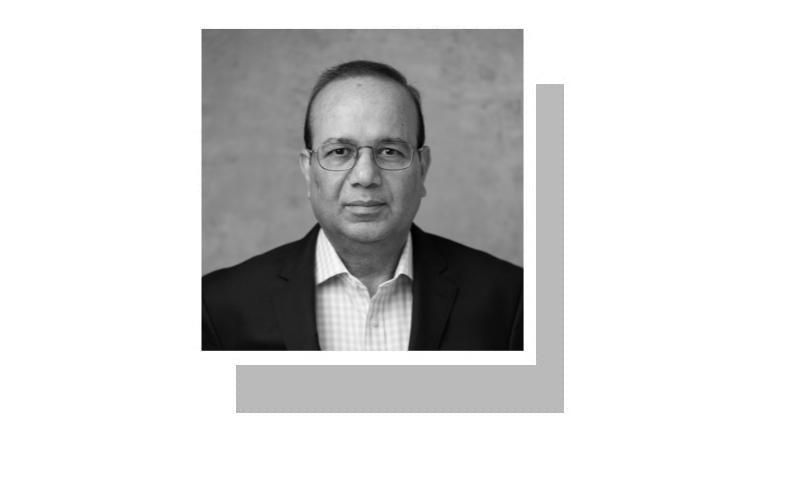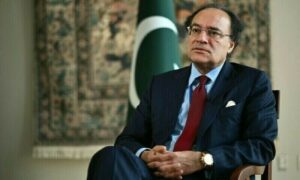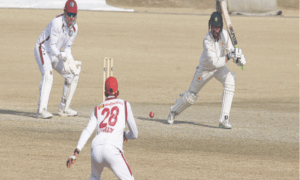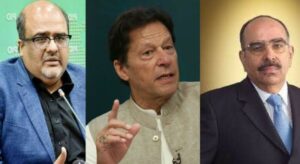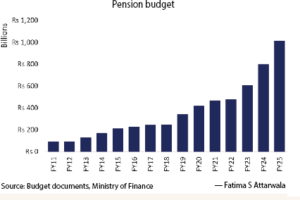THE importance of institutions for economic development and growth has long been recognised — for example, in the writings of Adam Smith and, more recently, exemplified by Douglass North’s 1993 Nobel Prize.
Governance quality and perceptions of the political, economic, and policy climate are critical in shaping overall conditions for investment and growth. Given the mobility of international capital, strong institutions play a major role in attracting and retaining investment inflows.
Pakistan’s declining growth and investment trends are largely attributable to the continuous decline of its institutions. This is reflected in poor governance assessments in the World Bank’s ‘Worldwide Governance Indicators’. When benchmarked against regional counterparts, Pakistan’s performance is subpar. For instance, in ‘government effectiveness’, India’s percentile rank was 67.9, while Pakistan lagged at 30.6 in 2023. In ‘political stability and absence of violence/terrorism’, Pakistan’s rank was a mere 6.6. Similarly, in ‘regulatory quality’, Pakistan’s score of 19.8 was well below India’s 47.2.
Governance in Pakistan’s public institutions has reached a critical point. The political leadership remains oblivious to the fact that their actions, motivated by political ambitions and vested interests, are eroding key state institutions — parliament, judiciary, and executive. Consequently, Pakistan is trapped in a low-growth, low-investment cycle, facing insurmountable development challenges. To illustrate, the economy grew by just 0.98pc in the first quarter, well below the projected 3pc for this year.
The current self-styled democratic government, often called a ‘hybrid regime’, continues to undermine civilian institutions. Parliament, a key state organ, is in a precarious position.
The speedy passage of the 26th Constitutional Amendment and six subsequent bills — such as expanding the Supreme Court bench from 17 to 34 judges and extending the tenure of military chiefs from three to five years — shows blatant disregard for the institution. These bills were rushed through both houses, quickly assented to by the president, and published in the gazette — all within a few hours. This questionable process reflects a complete disrespect for parliament, where members were apparently instructed to vote ‘yes’ without debate, often unaware of the bills’ content or implications.
Amidst a severe economic crisis, the failure to appoint qualified leadership is inexcusable.
Like the judiciary, the executive is also crumbling. Key positions are filled by civil servants loyal to the ruling parties, without regard for seniority or relevant expertise. Moreover, serving military officials have been appointed heads of civil institutions.
Pakistan’s tax authority faces acute organisational problems. The current FBR chairman, from administrative service, was appointed after the prime minister picked him for the lucrative slot, superseding over two dozen senior officers of Customs and Inland Revenue Service. This led to a cascading effect within the organisation, with several junior officials appointed to higher posts, potentially impacting institutional performance.
Since the early 2000s, successive foreign-funded tax reforms and government-appointed commissions aimed at improving the tax-to-GDP ratio have all failed, weakening the FBR’s capacity to collect taxes. Furthermore, the government removed 25 senior tax officials, based on intelligence reports, draining morale among tax officials.
The State Bank of Pakistan’s institutional capacity is similarly being eroded. For two years, it has operated without a deputy governor for critical monetary policy and economic research functions despite the legal requirement to fill such positions within 30 days of a vacancy. Another deputy governor position for banking has been vacant for two months. Amidst a severe economic crisis, the failure to appoint qualified leadership is inexcusable.
Prime Minister Shehbaz Sharif has empowered the security agencies to clear all appointments to public service requiring federal cabinet approval. This effectively allows junior security officials to overrule ministerial and secretarial recommendations, circumventing the authority of the cabinet to approve appointments of seasoned professionals with internationally recognised expertise.
The establishment’s interference in political affairs is an old issue, but it has recently taken active charge of the country’s economic management, formalised by the creation of the Special Investment Facilitation Council (SIFC) in June 2023. Initially premised on creating a one-stop facility to attract foreign investment from Gulf countries, the SIFC has virtually become a supra-cabinet, with the military leadership now overseeing economic matters.
The army chief’s meetings with businessmen to discuss economic issues, coupled with assurances of $100 billion in foreign investment, illustrate the SIFC’s growing influence. Coordinated by a military officer and granted the status of a division, the SIFC has created a parallel structure within the government.
Investment is not secured through government MoUs or by mantras. It is the private sector that creates opportunities and negotiates with foreign investors. Investment depends on political and economic stability, policy consistency, investment security, and global competitiveness of businesses. Despite the SIFC’s efforts, investment fell to a record low of 13pc of GDP in FY24, below the long-term average of around 15pc. Pakistan attracted just $1.9 billion in FDI, a mere $275 million increase from FY23, and below the $1.936bn in FY22.
The above instances show that the state is being run in a bizarre fashion. As if globally recognised economic principles and governance standards do not apply to Pakistan, the country has created its own set of governance methods where one institution or group bulldozes the mandate of others.
Without strong institutions, no government plans — such as the recent Uraan Pakistan — will fare any better than previous failed initiatives like “Qarz utaro mulk sanwaro”, or the misguided crowdfunding for mega dams. The country cannot progress through political hymns. We need statesmen, not self-serving politicians, to steer the country out of this mess.
The writer is a former senior adviser of the IMF, and holds a PhD in economics from the University of Cambridge.
Published in Dawn, January 13th, 2025

